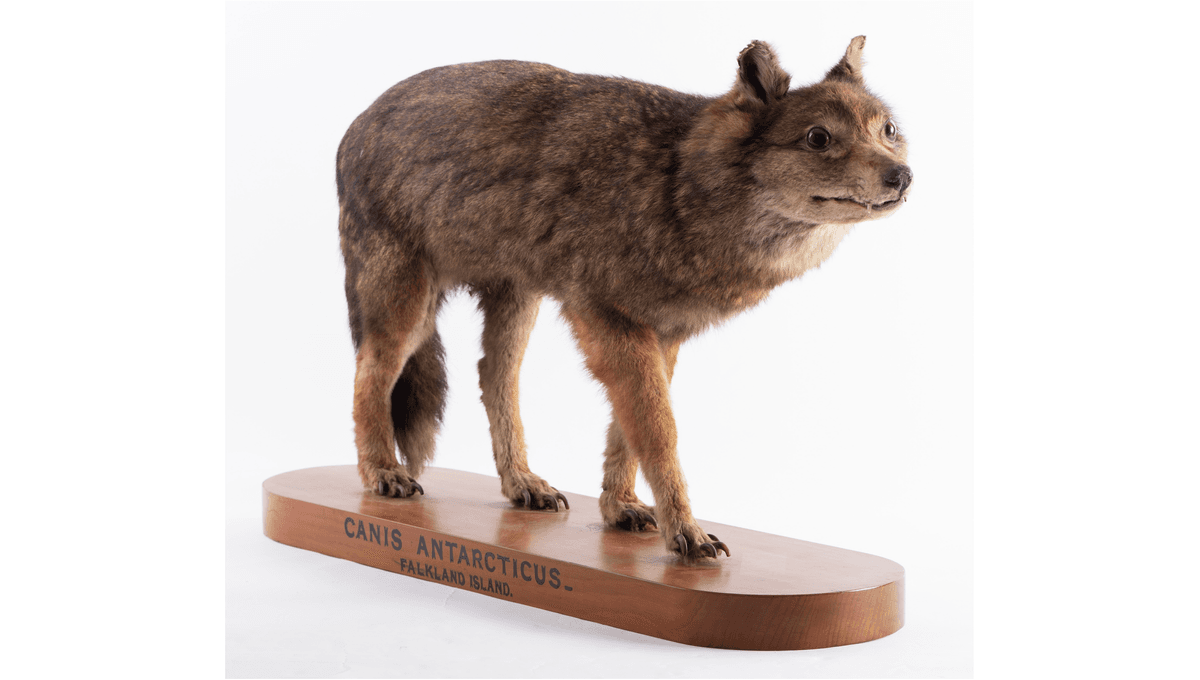The Falkland Islands Wolf: The Tragic Tale Of The First Known Canid Humans Drove To Extinction

The Falkland Islands Wolf: The Tragic Tale Of The First Known Canid Humans Drove To Extinction
If people were to know anything about the animals of the Falkland Islands, it’d be likely to be the fact that there are a lot of sheep – but there never used to be. Before the arrival of European settlers in the late 1700s, there was only one land mammal native to these isles. Only a little over 100 years later, it was gone.
The mammal in question is the Falkland Islands wolf (Dusicyon australis), the first canid known to have been driven to extinction by humans. It was a curious creature, with a mixture of wolf and fox-like traits; it was about the same size as a large fox, with short legs and a bushy tail ending in a distinctive white tip. Charles Darwin, who rocked up at the Falkland Islands in 1833 on HMS Beagle, seems to have been thoroughly baffled by the canid, and how on Earth it had got there. “As far as I am aware, there is no other instance in any part of the world, of so small a mass of broken land, distant from a continent, possessing so large a quadruped peculiar to itself,” he wrote in 1834. It was only in the 21st century that we began to get a much clearer picture of where the Falkland Islands wolf had come from. While some previous research had proposed that an ancestor of the wolf had made its way from South America to the islands via some sort of sea bridge, more recent studies have dismissed that idea. Instead, some scientists have suggested that, contrary to popular belief, there were settlers on the islands before the Europeans arrived, and that they brought the canid with them. But long before we could figure out where exactly the wolf came from, we’d already managed to make it disappear. Darwin had even predicted this would be the case in his earlier journals. “Their numbers have rapidly decreased […] Within a very few years after these islands shall have become regularly settled, in all probability this fox will be classed with the dodo, as an animal which has perished from the face of the earth,” he wrote. Depending on how many you view “a very few” to be, Darwin wasn’t far wrong – the Falkland Islands wolf went extinct in the wild in 1876. This was primarily due to hunting. Accounts had described the wolves as being tame and curious, something that made it easier for them to be culled, particularly by fur traders and island settlers who viewed the animals as a threat to their sheep. While some wolves had been transported to London Zoo prior to this point, they later died, and there’s no report that they ever successfully reproduced while in captivity. The Falkland Islands wolf was gone, forever. It’s just one of at least 680 species estimated to have been driven to extinction by humans since the 16th century, with entire branches of the tree of life having been wiped out. The actual number could be even greater, with some even suggesting that human action is driving a sixth mass extinction.


